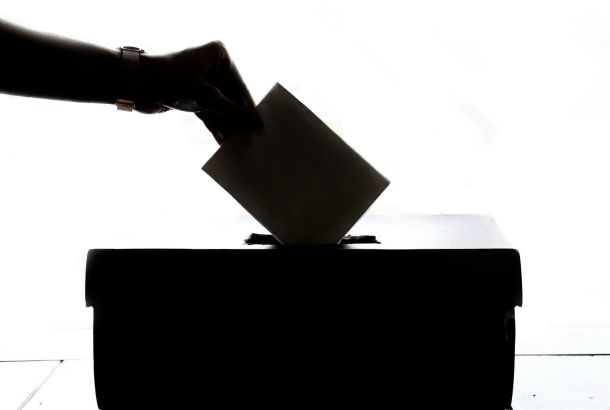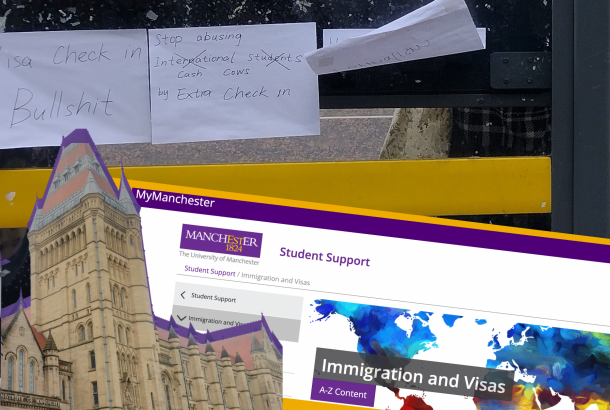Drug testing crisis: Only 250 kits for 40,000 students
By Luke Hewitt

As a part of the University of Manchester moving away from a zero tolerance drug policy and towards one centred around harm reduction, free drug testing kits have been made available at the Students’ Advice Centre in the Students’ Union. However, for a campus of over 40,000 students, less than 250 tests are available.
The Mancunion has discovered that prior to the first week of term there were only 219 tests available. Of the 219 tests, there are limited amounts for each particular drug: 16 for Ecstasy, 24 Ketamine, 67 Cannabinoids, 46 Cocaine, 28 Benzodiazepines, and 38 GHB.
Since the drug testing kits launched in the SU the uptake has been very low – only 61 kits were used by students last semester. The low uptake could be due to a number of different factors, but, the majority of students we spoke to were completely unaware of the kits’ existence.
Around the University campus there is little to no advertisement or acknowledgement of their existence by the University or SU. The University of Manchester Students’ Union website state’s there are free drug testing kits available from the SU Advice Centre and provides an explanation on how students can obtain them.
Unfortunately, the information is hidden away under a slightly ambiguous tab labelled “harm reduction”, which may not instantly equate safer drug and alcohol habits for those unaware of drug policy terminology.
A 2018 survey conducted by the National Union for Students (NUS) and drug expertise charity, Release, found that 56% of students surveyed have used or use drugs. Currently, the University of Manchester has made these potentially life saving kits available to a meagre 0.63% of students.
The current drug testing kits supplied are EZtestkits, single use testing kits that indicate the presence of substance. The kits are far from perfect; the manufacturer’s website states that ideally, they should be used in conjunction with other forms of testing and they don’t indicate the potency of the substance being tested. Nonetheless, they are still a useful tool that enables students to understand what is in the drugs they have purchased.
The importance of these kits has come into focus in the last few years due to a rise in abnormally potent and mis-sold drugs. In August, at Manchester Pride, Mandrake Drug analysis lab at neighbouring Manchester Metropolitan University (MMU) discovered a synthetic cathinone, MDPHP, being sold to people as MDMA.
⚠️WARNING! 26 August 2022 ⚠️
— Manchester Pride (@ManchesterPride) August 26, 2022
Back-of-house substance testing by @MANDRAKE_LAB has found synthetic #cathinone #MDPHP (aka. Monkey Dust) being mis-sold as powder #MDMA circulating at Manchester Pride Festival.
If unwell please seek medical attention. pic.twitter.com/bJsnNOe762
Mis-sold drugs are far from the only worrying issue Mandrake Drug Lab have uncovered through testing. In the last year, they have discovered MDMA tablets with up to 4-5 times the average dose circulating in Greater Manchester. Concentrated doses can increase the risk of overdose dramatically.
With freshers events and the winter calendar of music events just beginning, the issue is unfortunately likely to persist over the coming months. Drug testing booths are becoming commonplace at festivals and live events across the country. At this years Warehouse Project, Mandrake Drug Lab are testing drugs confiscated by the security team on entry and issuing alerts via the WHP app to warn partygoers of any potentially dangerous substances circulating at the event.
Whilst initiatives like this are helpful and welcome step in the right direction, some students may not be aware of the alert system and the instant test kits supplied by the SU, may be their sole method of substance testing prior to an event.
The University, rightly, does not condone drug use, but it would be foolish to believe it does not take place amongst the student population. Universities UK, an organisation representing vice-chancellors and principals across all UK Universities, have committed to a sweeping, country-wide survey of drug taking amongst students.
In a recent interview with The Times, University of Middlesex Vice-Chancellor Nic Beech suggested that most universities are avoiding “zeros” (zero tolerance drug policies) in favour of harm reduction strategies.
Beech may also have provided the answer as to why universities are so reluctant to heavily advertise their drug and alcohol support networks. He said “there is a slightly contentious element to this — for a lot of universities and vice-chancellors to stand up and say ‘I think there’s a possibility that there is a drug problem we need to address’ is a risky venture, because no one wants to be labelled as having a drug problem.”
Whilst it may be more favourable for universities to lessen any potential drug problems on campus, it doesn’t help students. Equipping students with every tool possible to reduce the harm and impact of drugs won’t lower the status or appeal of a university, it will provide students with all the information needed to assess the risk of taking drugs and decide the best course of action for themselves.
Libby Elliott, the Head of the University of Manchester chapter of Students for Sensible Drug Policy (SSDP), commented “the SSDP’s first priority this term is printing posters and flyers to advertise testing kits in SU Advice. All students on campus should know these are available anonymously.”
“Hopefully, by the end of the year, we will have successfully campaigned to stock multi-use test kits for students. You can find out more about our harm reduction campaign on Instagram @ssdpmcr”.
An SU Spokesperson said:
“In the last academic year, following the joint work of the then Activities & Development Officer and the Students for Sensible Drug Policy (SSDP) campaign, we launched our Harm Reduction Service in the Advice Centre. Alongside that work, we worked with the University on a multi-channel Harm Reduction communications campaign to all students.
Upon its initial launch, the SU procured enough kits to measure demand which would then dictate future procurement. We will be soon ordering more Ecstasy and Ketamine tests as these have been taken up in more numbers by students.
The SSDP are working with DoseTest and Eclypse on sourcing a new type of kit that students will be able to reuse. We are always reviewing how our members are using our services and would make the adjustments necessary to meet demand. We encourage any student to use our Harm Reduction Service if they require it.”
If you have been affected by any issues raised in this article you can find help here:
FRANK – Talktofrank.com or on 0300 123 66002
The University of Manchester Counselling and Mental Health Service counsellingservice.manchester.ac.uk or 0161 275 2864
The Adult and Young People’s Drug and Alcohol Service – Manchester or 0161 823 6306







